as speed, complexity and growth trump trust?
Four things you might not know
- Two-hundred and four years ago, megalomania and narcissism trumped trust in leadership as Napoleon, after ignoring repeated advice against invading Russia, suffered a ruinous retreat, returning with only 40,000 troops out of a Grande Armée of 400,000.
- Self-interest vs. cooperation is a fundamental dilemma in animal behavior as well as in human and organizational behavior.
- In 1967-68, 56% of respondents agreed that “most people can be trusted,” by 2012 it was down to 32%.
- Only 1 in 4 adults trust their employers.
(7 minute read)
Napoleon’s legacy of leadership has been debated for two centuries with most concluding that he was an “enlightened despot” and “a megalomaniac who wrought greater misery than any man before the coming of Hitler.” And if the quotation below reflects anything, it is that he didn’t practice what he preached.
There are only two forces in the world, the sword and the spirit. In the long run the sword will always be conquered by the spirit. – Napoleon Bonaparte.
Like many leaders, Napoleon understood and preached what was required for success in the long-term, but lived and practiced what served his interests in the short-term. He lived by the sword. This dichotomy is a universal leadership weakness, in that most leaders can’t do what they intellectually understand is right because they are driven by self-interests, which undermine their capacity to do what is best in the long-term. And like Napoleon, most of today’s leaders use autocratic power as a substitute for their lack of capability to engage the spirit – the indomitable human spirit.
This under performing capacity to engage the human spirit might be the single biggest failure facing leadership today. And at the core of the problem is a most fundamental human need: Trust.
“A nation’s well-being, as well as its ability to compete, is conditioned by a single pervasive cultural characteristic: the level of trust inherent in the society.” – Francis Fukyama, Trust: The Social Virtues and the Creation of Prosperity.[1]
 Trust is the linchpin of leadership. And yet, achieving it is one of the most difficult of all leadership endeavors. In a May 2016 article in Frontiers of Psychology researchers stated: “Self-interest vs. cooperation is a fundamental dilemma in animal behavior as well as in human and organizational behavior. In organizations, how to get people to cooperate despite or in conjunction with their self-interest is fundamental to the achievement of a common goal … Self-interest [is] defined as “regard for one’s own interest or advantage, especially with disregard for others.” [2]
Trust is the linchpin of leadership. And yet, achieving it is one of the most difficult of all leadership endeavors. In a May 2016 article in Frontiers of Psychology researchers stated: “Self-interest vs. cooperation is a fundamental dilemma in animal behavior as well as in human and organizational behavior. In organizations, how to get people to cooperate despite or in conjunction with their self-interest is fundamental to the achievement of a common goal … Self-interest [is] defined as “regard for one’s own interest or advantage, especially with disregard for others.” [2]
Most leaders are in full retreat from this first-principle of great leadership and rather than mounting a fight to embed it, or re-embed it, they ignore it. Because they do not have the capacity to overcome their almost insurmountable self-interest that prevents them from building trust, which in turn, has resulted in one of the undeniable legacies of the 20th century: An unprecedented level of employee (and citizen) disengagement (i.e., Gallup: 87% of employees are disengaged globally; 68% in the US; 84% in Canada; and, on average, only 50% of US citizens and 60-70% of Canadians vote). It’s axiomatic that if employees are not interested in engaging in their work or company (or country), they sure as hell don’t have much trust in leadership. Of course, they’ll listen to all the platitudes and participate if they “have to,” but trust starts at a much deeper level. Trust is easy to spout, as in “trust me.” It’s easy to propagandize, as in “In God We Trust.” It’s easy to manipulate, as in “it’s in a trust fund.” But achieving it is another matter.
“Trust is the only legal performance-enhancing drug.” – Dov Seidman, CEO of LRN[3]
Embedding trust runs counter to self-interests. First, its hard to engender and secondly it takes time, a lot of time. And can be lost in a blink. Germane to leadership behavior, self-interests don’t get rewarded easily by building trust because results don’t show up in the short-term cycle of business performance metrics (i.e., productivity, profits, stock price, bonuses). In politics, leaders are driven by the short-term need to pursue money and votes; thus, forsaking the longer goal of building trust. The abdication of this long-term goal was recently exposed by the long-simmering distrust that emerged with Brexit and the election of Donald Trump. And yet, Trump’s leadership is also ignoring the principle with every tweet and at every turn, as he undermines the trust with US intelligence, the United Nations and in the Israeli-Palestinian peace process, to name just a few. (I am sure his children don’t really trust him. But that’s another conversation – coming soon).
It is more than twenty years since Francis Fukyama posited in his book, Trust, the growing imperative of “social trust” and stated that it would be as important as physical capital. He cited studies that showed the decline in social trust over the previous three decades.[4] In a 2014 article, The Decline of Trust in the United States, by Josh Morgan, the magnitude of the problem was reconfirmed and a number of books were cited that relate to the troubling outcomes of declining trust.
Trust is the glue that binds people together. It is a rare concept in the social and behavioral sciences in that the evidence for its benefits is overwhelming. Trust is correlated with [click for book references] increased civic participation, decreased corruption, increased resilience to disasters, decreased economic inequality, and decreases in illegal activities. It is also correlated with increased health, happiness, and intelligence. Practically all researchers studying trust have concluded that it improves the human experience. – The Decline of Trust in the United States.
Morgan’s article sets out, in detail, some of the particulars of the decline. Here are just a few highlights:
- Trust began to increase after World War II, and rose through the 1960s, peaking in 1967–1968, when 56% of respondents agreed that “most people can be trusted.” It’s been downhill ever since.
- Respondents who said that most people can be trusted dropped from about 46% in 1972 to about 32% in 2012.
- An Associated Press/GfK survey in 2013 found only 1 in 3 respondents would agree that “most people can be trusted.”
- In the context of political trust, Pew found that less than 1 in 5 adults trusted the government in Washington.
- In the workplace, the American Psychological Association found that roughly 1 in 4 adults did not trust their employers.
- For Millennials, Pew recently found that less than 1 in 5 adults between 18 and 29 years old believed that most people could be trusted.

photo: nationalparkservices
Is trust dead?
As leaders continue to whistle past the graveyard of trust, it’s worth starting a conversation about a few of the obvious contributing factors, and where and how to begin a process of resurrection. Trust isn’t t dead, yet, but after a fifty-year downward trend we need to embark on the battle to reverse it. And a good place to start is at the grassroots, in communities where we have a chance of staunching the retreat from true leadership.
In small towns we often come face-to-face with distrust in leadership. But here, instead of retreating, we can fight the problem. Here we can grab the problem by the throat and take action. Here we can influence leaders or find new leaders, and begin to rebuild communities of trust. Here is where trust has a chance to rise again.
“The more that the world demands that we branch out, the more we each need to be anchored in a topsoil of trust that is the foundation of all healthy communities. We must be enriched by that topsoil and we must enrich it in turn.” – Thomas Friedman

photo: MacMillan
Tom Friedman, in his new book, Thank You for Being Late: An Optimists Guide to Thriving in the Age of Acceleration, travels back to his hometown of St. Louis Park, Minnesota to research his premise that “we can overcome the multiple stresses of an age of accelerations – if we slow down.” Friedman states, “The three largest forces on the planet – technology, globalization, and climate change – are all accelerating at once. As a result many aspects of our societies, workplaces and geopolitics are being reshaped and need to be reimagined.”[5] In Minnesota he discovered that a “healthy community” was a key building block and the incubator for what Fukyama called “social capital.”
I agree with Friedman that healthy communities is where trust and leadership can be fostered. But I would add that there’s another seismic shift that runs counter to “healthy communities” and although Friedman might say that it’s inherent in “globalization,” I believe it needs to be highlighted as a critical force: Urbanization. Yes, technology is changing everything. Yes, globalization is restructuring the way the world works. Yes, climate change is real. But the inevitable migration of people into large urban centers, mega-cities and mega-regions (e.g., Bos-Wash, Char-lanta, So-Flo, So-Cal, Tor-Buff-Chester) could be a far-reaching threat to the well-being of humanity.
“Most cities were demographic sinkholes, parasitic on rural villages since they imported both food and manpower from the countryside. Cities still fail to reproduce themselves and still depend on rural immigrants to do their dirty work … This is the situation in which humankind finds itself … a pattern of life and labor in full retreat.” – William H. McNeill, The Human Web.
Father and son historians and authors, William H. McNeill and J. R. McNeill, in their “brilliant synthesis of world history,” The Human Web, state that there is a “human web that now unites, and … has always united humankind.” William McNeill says, “We need face-to-face primary communities for long range survival: communities like those our predecessors belonged to, within which shared meanings, shared values and shared goals made life worth living for everyone, even the humblest and least fortunate.”[6]
Looking across history, the McNeills confirm that the forces Friedman identifies have created an unprecedented human web that propagates change, complexity, competition, conflict, specialization, differences and power. They proffer: “The most critical question for the human future is how cell-like primary communities [my italics] can survive within the global cosmopolitan flows that sustain our present numbers, wealth and power without being disrupted by those flows and without disrupting them.” Friedman echos this, saying we need to build more inclusive communities and that “leadership matters more than ever – but a particular kind of leadership … leadership that trusts the people with the truth of this moment….”
Leadership cannot continue to retreat from this reality. Healthy “cell-like primary communities” – small towns and neighborhoods, even in mega-cities – are essential for the renewal of trust, which is the flame in the indomitable human spirit. Jane Jacobs, in Dark Age Ahead (2004), wrote about the five pillars of our culture and society and the ominous signs of decay in each. The first one is “community and family (the two are so tightly connected that they cannot be considered separately).”[7] She stated that the loss of community is “in miniature, the malady of the Dark Ages.”
“How in the image of material man, at once his glory and his menace, is this thing we call a city.” – Frank Lloyd Wright.
Scorched earth growth
The urbanization of the planet over the past century has been an economic juggernaut that has trumped our need for healthy communities, civility and trust, all buried under landscapes of pavement, towers of concrete, sterility of suburbia, contagions of fast-food, clouds of CO2, and tsunamis of chaos. Today, in the US and Canada, 81% of the population currently inhabit urban centers and the worldwide urban population will grow from 54% to 66% by 2050 (see earlier blog, Empires decay from within). It’s possible the human web may well choke on its own appetite for speed, complexity and growth and destroy the last vestiges of healthy communities, which may be the only place where true leaders of trust can make a last stand and begin to thrive and multiply once again.
We need generative communities of trust. Without community there is no trust, without trust there is no leadership, and without leaders of trust there is no sustainable prosperity and well-being.
We must not retreat in the face of the withering advance of technology, speed and complexity and simply hunker down in intellectual laziness and pervasive megalomania. Or worse, lead a Napoleonic retreat from the one of the biggest threats we’ve ever faced, and treat distrust and disengagement as nothing more than walking wounded. Instead, we need leaders to recreate armies of trusting and engaged employees and citizens, who are prepared to rebuild healthy communities through the power of their indomitable human spirit.
Think about it.
Additional suggested reading:
- The Moral Foundations of Trust by Eric Uslaner
- Who’s Your City? How the Creative Economy Is Making Where to Live the Most Important Decision of Your Life by Richard Florida
- Suburban Nation: The Rise of Sprawl and the Decline of the American Dream by Andres Duany, Elizabeth Plater-Zyberk, Jeff Speck
- The Great Degeneration: How Institutions Fail and Economies Die by Niall Ferguson
Footnotes:
- Trust: The Social Virtues and the Creation of Prosperity by Francis Fukyama, p.7.
- Thank You for Being Late by Thomas Friedman, p. 3.
- The Human Web by J. R. McNeill and William H. McNeill, p.326.
- Dark Age Ahead by Jane Jacobs, p. 24.


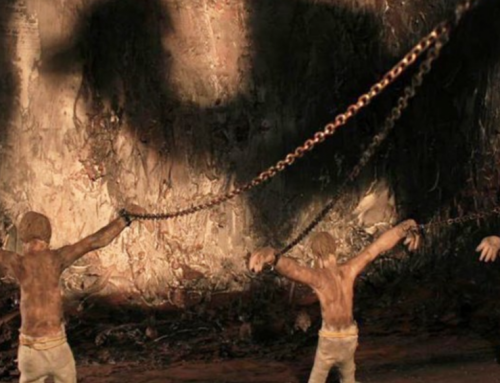
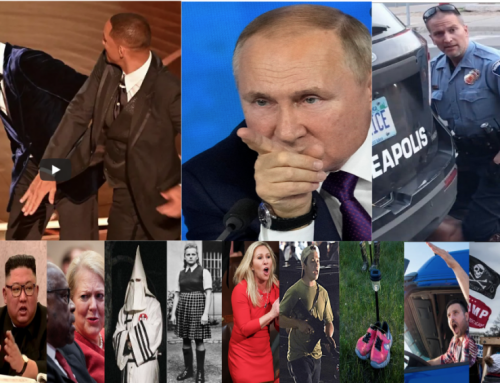
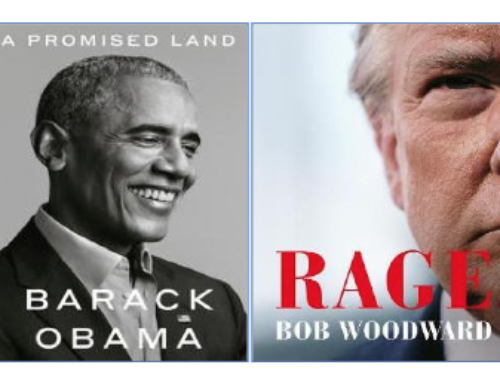
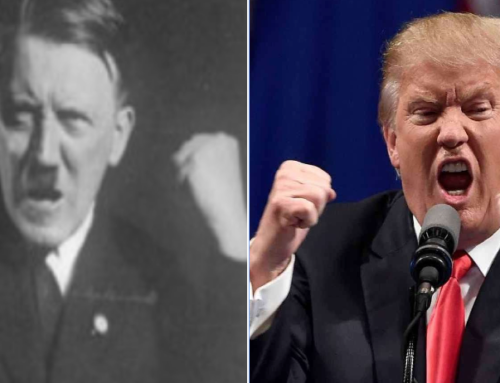
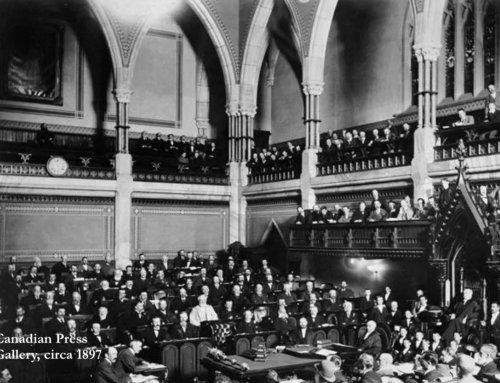
Leave A Comment